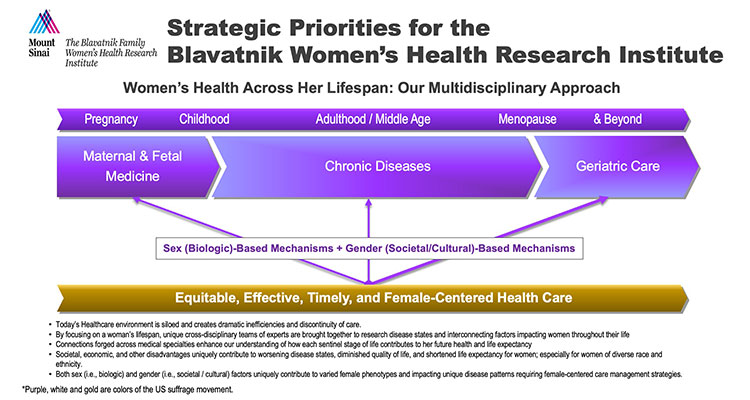The Blavatnik Family Women’s Health Research Institute
The Blavatnik Family Women’s Health Research Institute draws its team of faculty from many departments at the Icahn School of Medicine at Mount Sinai. We have experts in obstetrics, gynecology, and reproductive science; population health science and policy; cardiology; psychiatry; and radiation oncology. We perform state-of-the-art research across the woman’s life span. Our goal is to fill in the knowledge gaps while also providing compassionate care for our patients. We strive to address health inequities and to discover ways to improve the lives of the racially and ethnically diverse women we serve in Harlem and across New York City.

Contact the Institute
The Blavatnik Family Women’s Health Research Institute
Icahn School of Medicine at Mount Sinai
One Gustave L. Levy Place, Box #1077
New York, NY 10029-6574